It’s Time All the Time for Radical Friendship is a project initiated by Swimming Pool at the time of lock-down due to the Covid-19 pandemics, that aims to enable an attentive interrelation between art organizations, in order to make concerns, politics and action, but most of all invention, shareable across different contexts and ecosystems.
The practice of reflection on instituting as invention is central to the program of Swimming Pool that has been defined by the relation of the exhibition space to the empty pool on the terrace: since the founding, both cubes – the white and the blue – appeared to be intrinsically entangled, and it was by invoking, living, and expanding this entanglement that Swimming Pool has been instituting itself ever since. Later, this entanglement also gave rise to an educational program for founders and curators of art organizations – as different as project spaces, collectives and initiatives, micro institutions –, whose aim was to broaden the scope of reflection on instituting and curating via an institution, mainly by involving the experience of different actors and contexts. As a result, it seeded the ground for many institutional friendships to grow together.
It’s Time All the Time for Radical Friendship is, thus, guided by the need to continue the conversations with our befriended organizations – Apparatus 22, ODD, fluent, TIER, Enterprise Projects – that would allow to better comprehend the circumstances that are given to similar organizations, and cultivate a ground for coming together. To call for “radical friendship” is to ask to pay utmost attention to complexities, desires and vulnerabilities surrounding each of our practices, and make such awareness central when growing common structures. It is also carried by the belief that such an encounter would allow for a better understanding of our situatedness and responsibility, while layering on our actions of care and solidarity.
It’s Time All the Time for Radical Friendship, however, is not a plea only for those involved in this frame. Through the project, we believe that we are able to better identify the social and political relevance of art institutions that are not bound to the market as commercial galleries, or have representative purposes as museums and large institutions. Indeed, while the cultural sector worldwide has been immensely hit by the Covid-19 crisis and the art sectors have had to put again and again most of their their activities entirely on hold, it was such art organizations who transitioned through various cycles of self-reflexion, political work and institutional visioning that have enabled them to promptly resonate with recent transformations.
Another essential part of the project and its trajectories is, thus, its desire to draw the attention to the question of how we could institute better. Many art organizations all over the world let a pattern of institutional critique be shaped around decentralization, political involvement and care, on the one hand, and collaborative practices, on the other. Only through making space for individual and collective needs and particularities, vulnerabilities and responsibilities, we can allow invention to take place, and see social textures to emerge, with their own rhythms, resonance, and language, along with new laws and a state apparatus.
For the exhibition hosted by FUTURA in Prague, ODD presents a new work by Cristina Bogdan, the short film titled Campus. One can address it as a continuation of Cristina’s work with ODD, which has been about complexifying the imaginary stemming from Romania, as opposed to narrowing it down to the binaries usually endorsed and funded – these discussions were on the table, but never in enough quantity to make ODD into something recuperable. The film, as it shows a young boy captivated by the world he has built himself, puts forward the value of simply thinking with your own brain. The 2 speeds of the film introduce the question of entropy, whose definition is an answer to the question, “How many states can a system take on?” The final images, where the world comes in rather luxuriantly, are about creating peace through complex thinking: it is not thinking meant to create division, but to inspire, to encourage more thinking.
Below a conversation between Viktoria Draganova, Cristina Bogdan, Dragoș Olea, Lorenzo Sandoval and Benjamin Busch, Alexandro Alonso, Vasilis Papageorgiou, streamed on Swimming Pool’s YouTube channel on Friday, December 4th, between 18:00 – 20:00 CET.
The exhibition can be visited until Sunday, December 6th, after which an online version will be visible on the FUTURA website.
Campus is on view on Swimming Pool’s YouTube channel until December 12th.



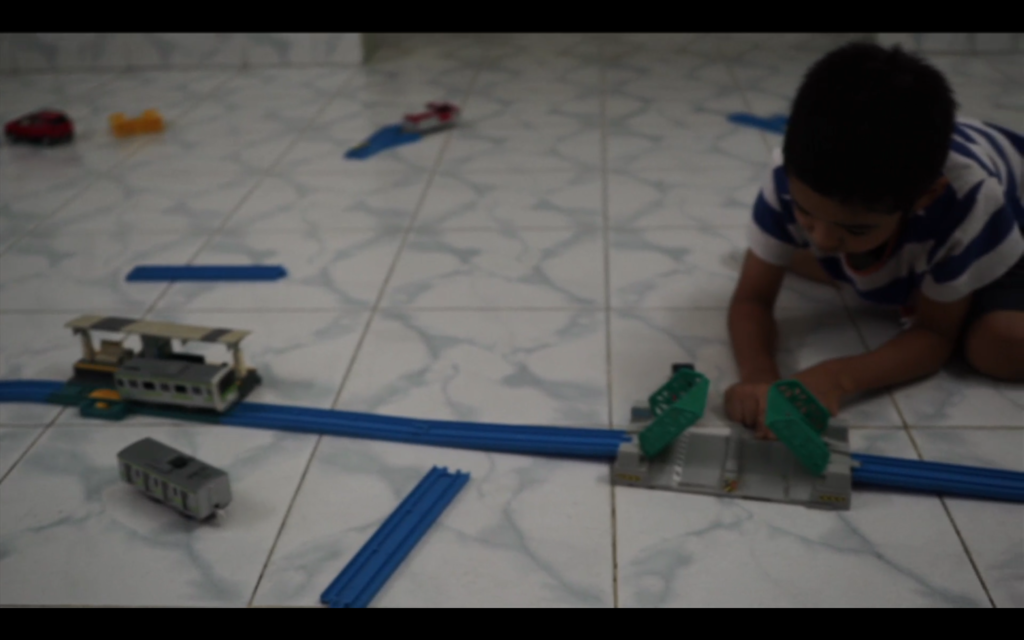



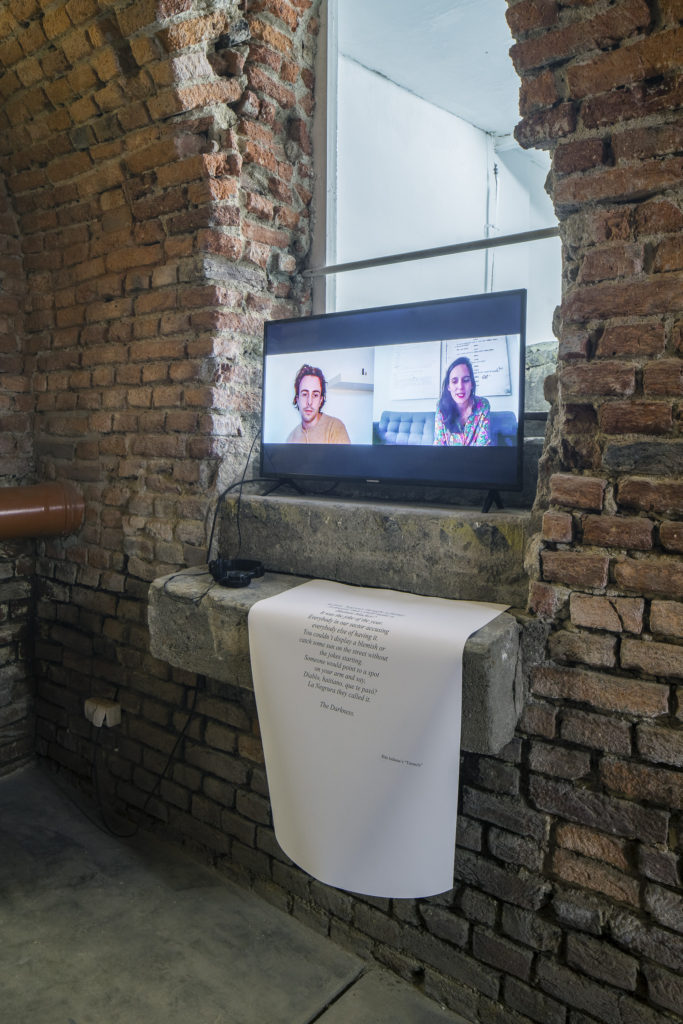
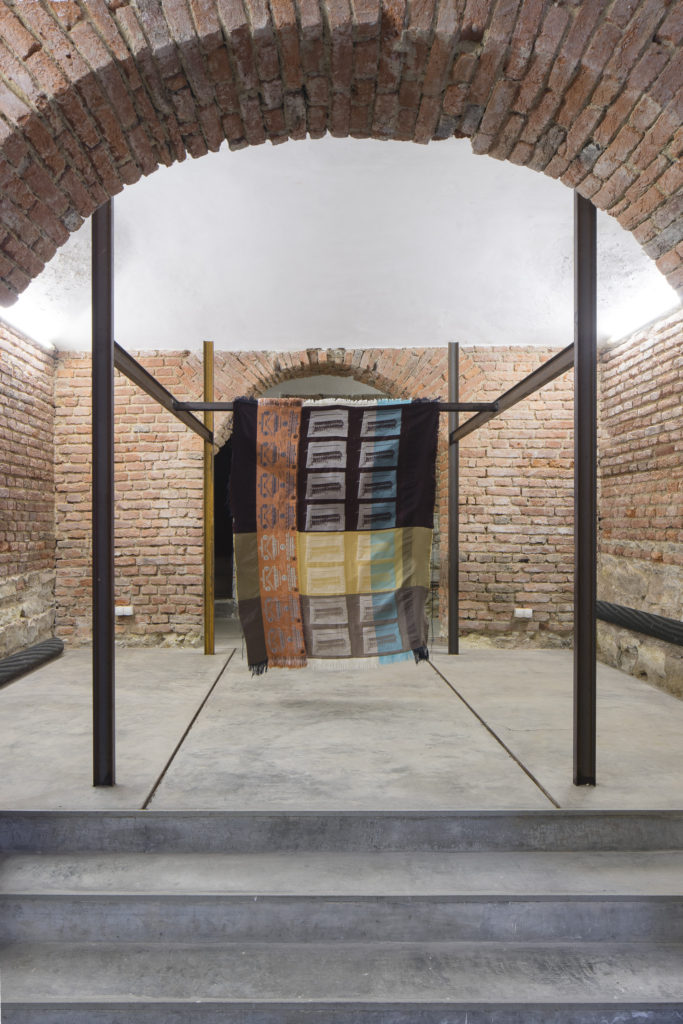
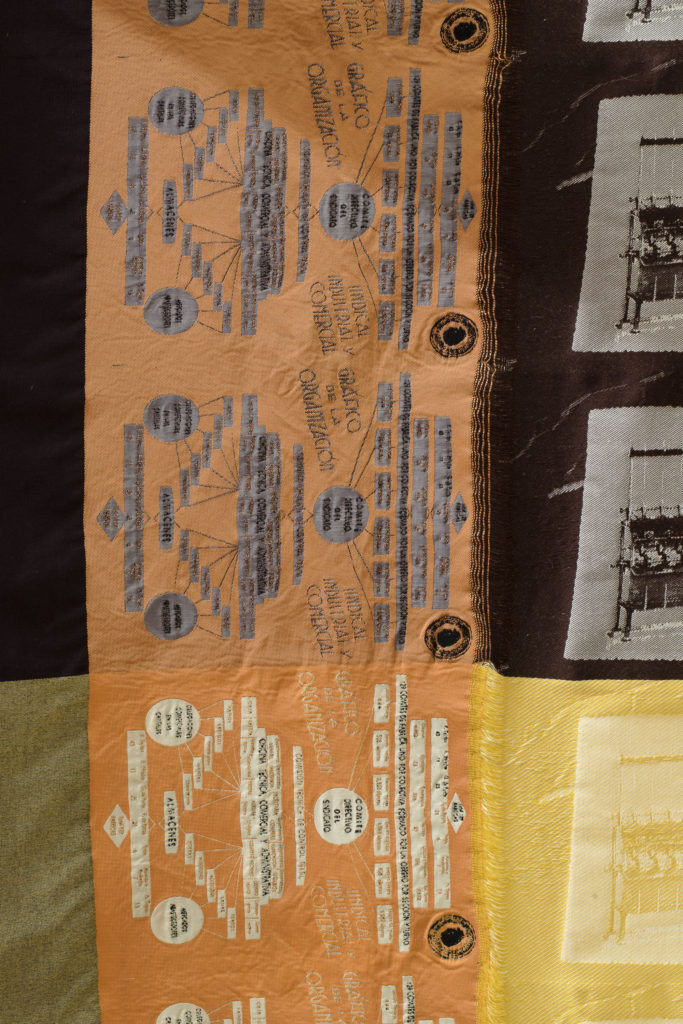



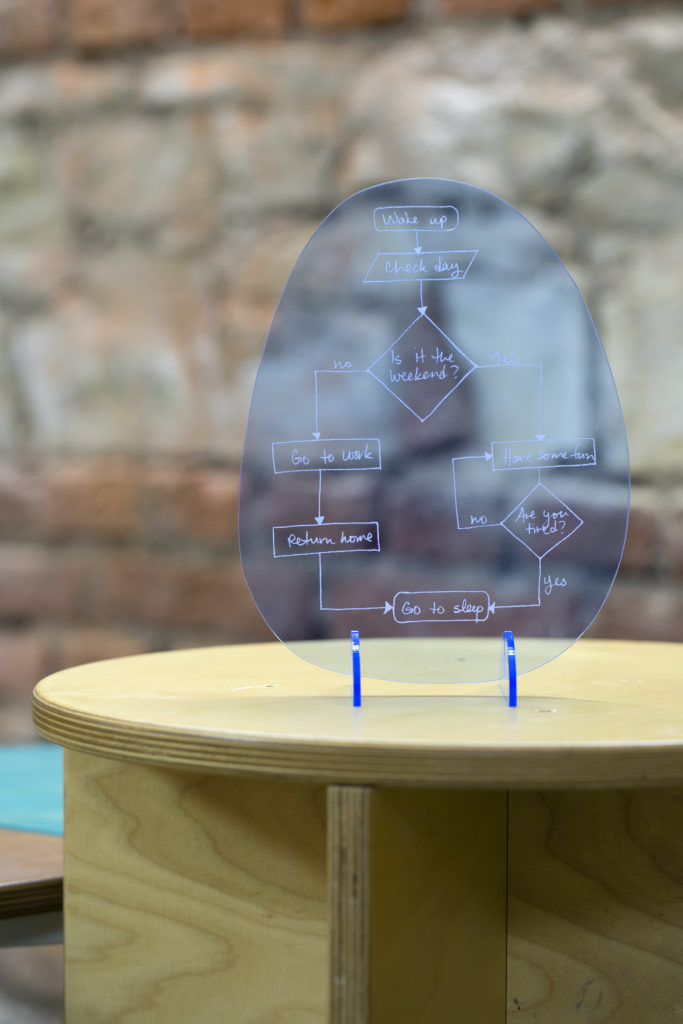
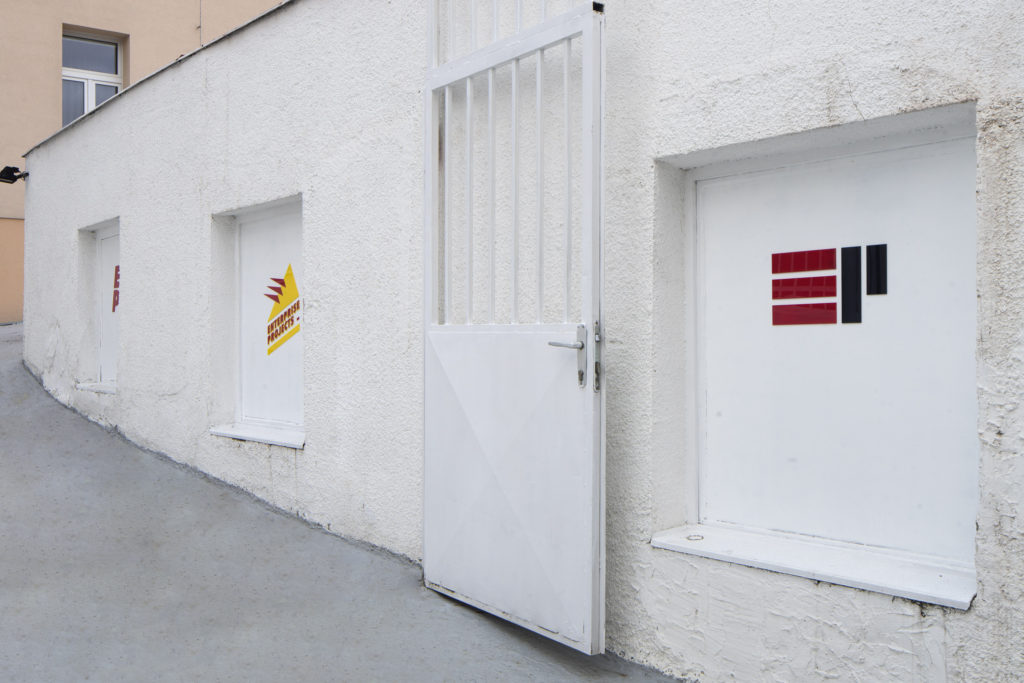
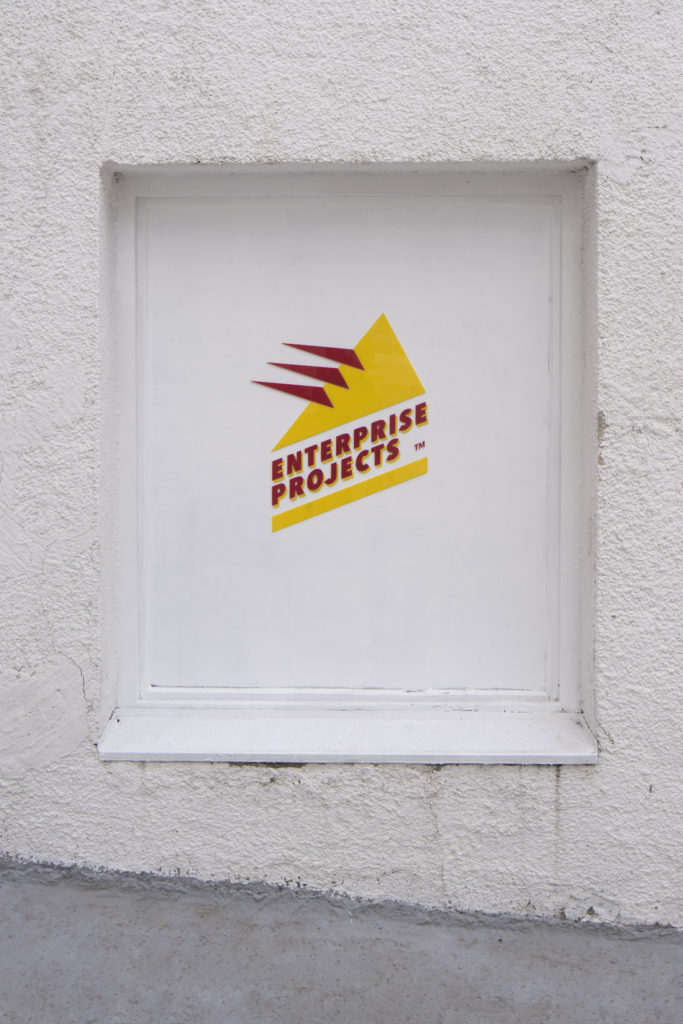
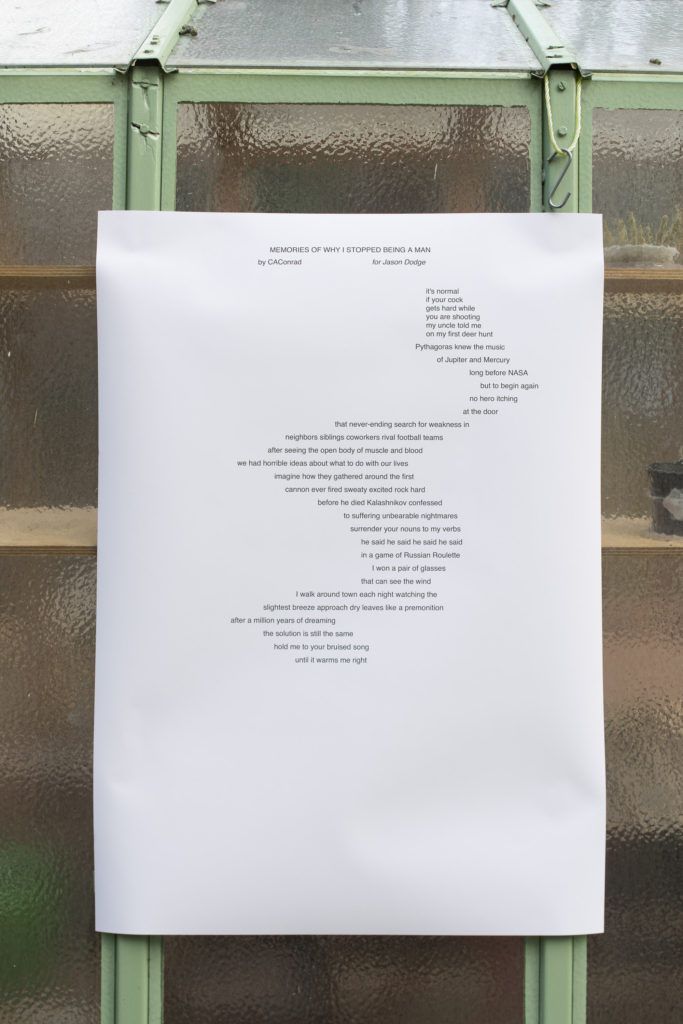




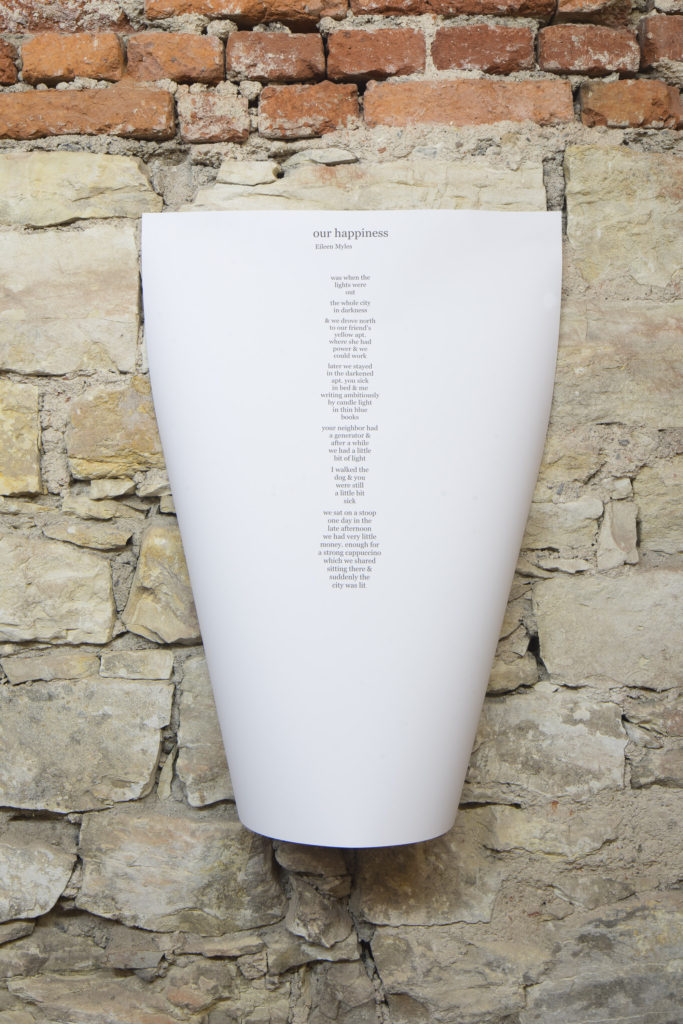
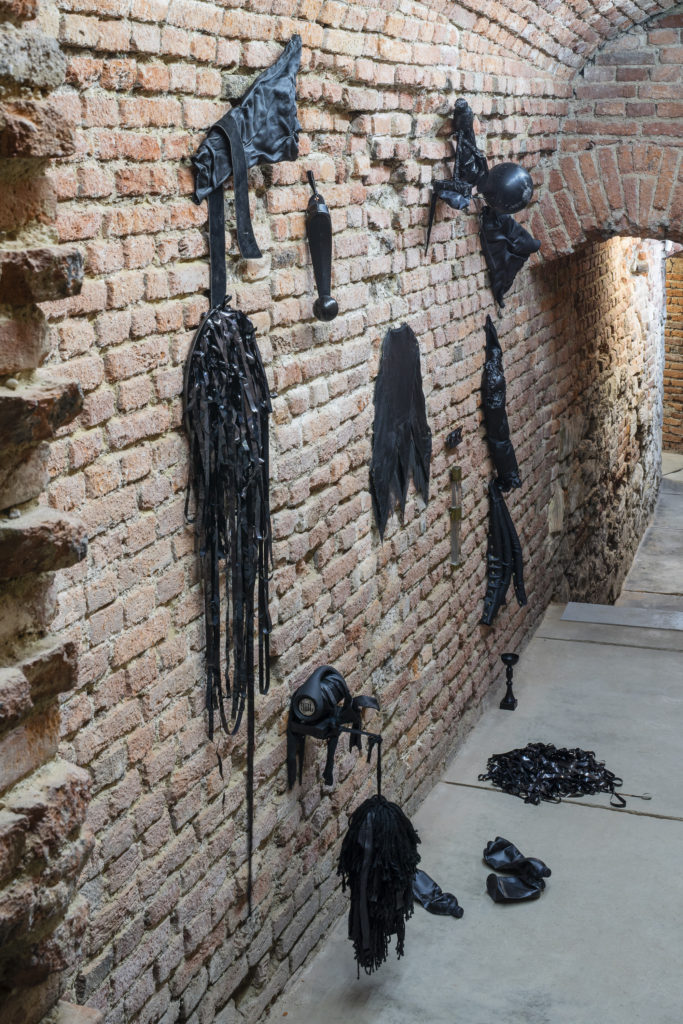
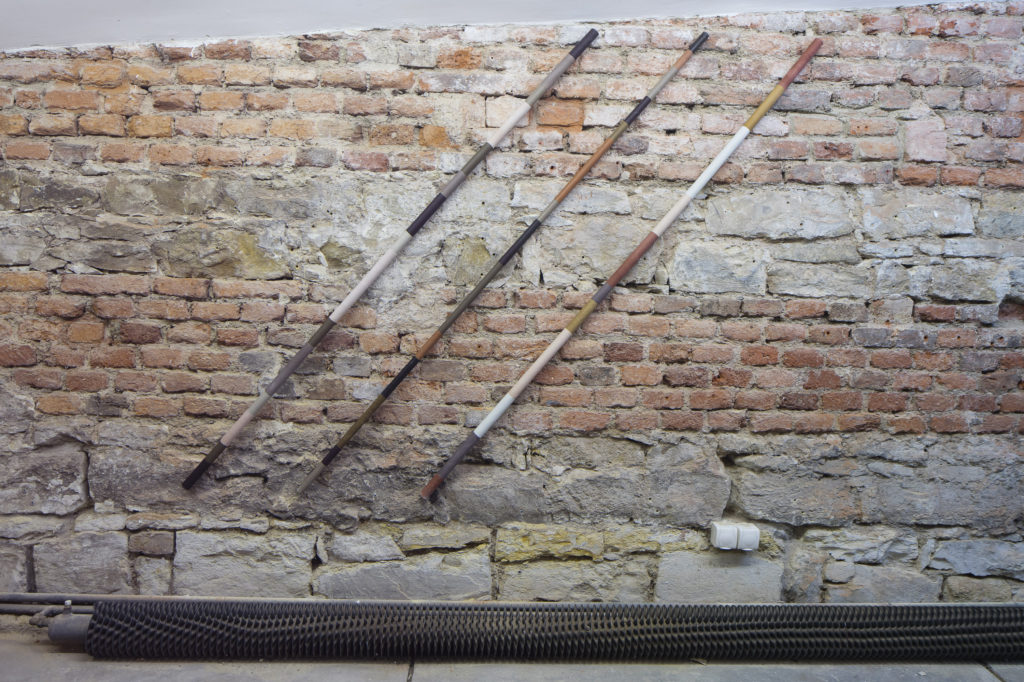
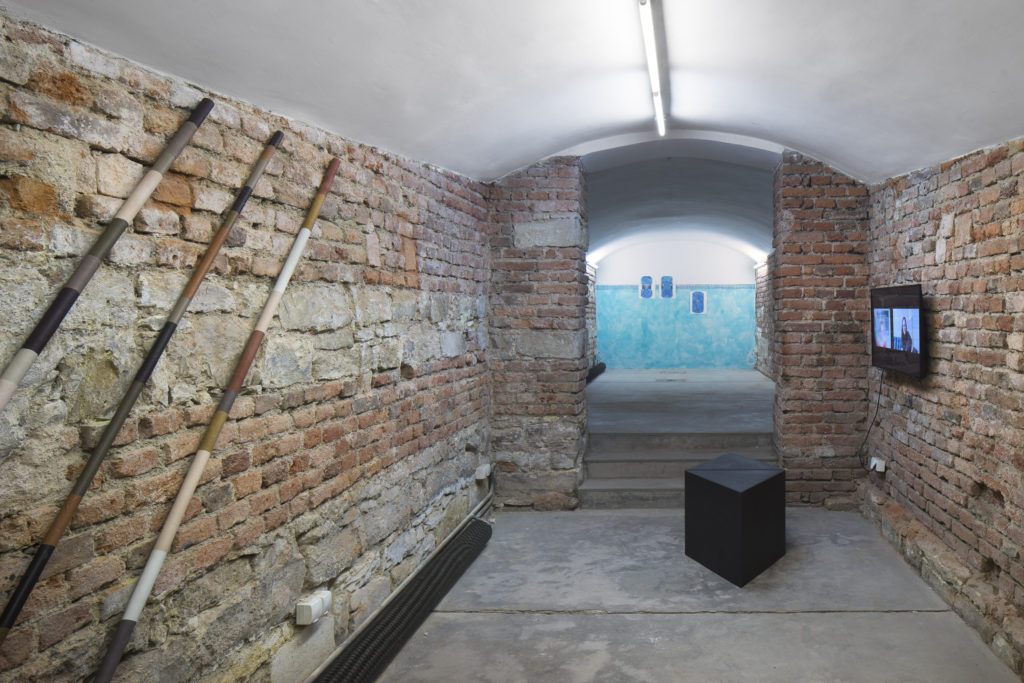
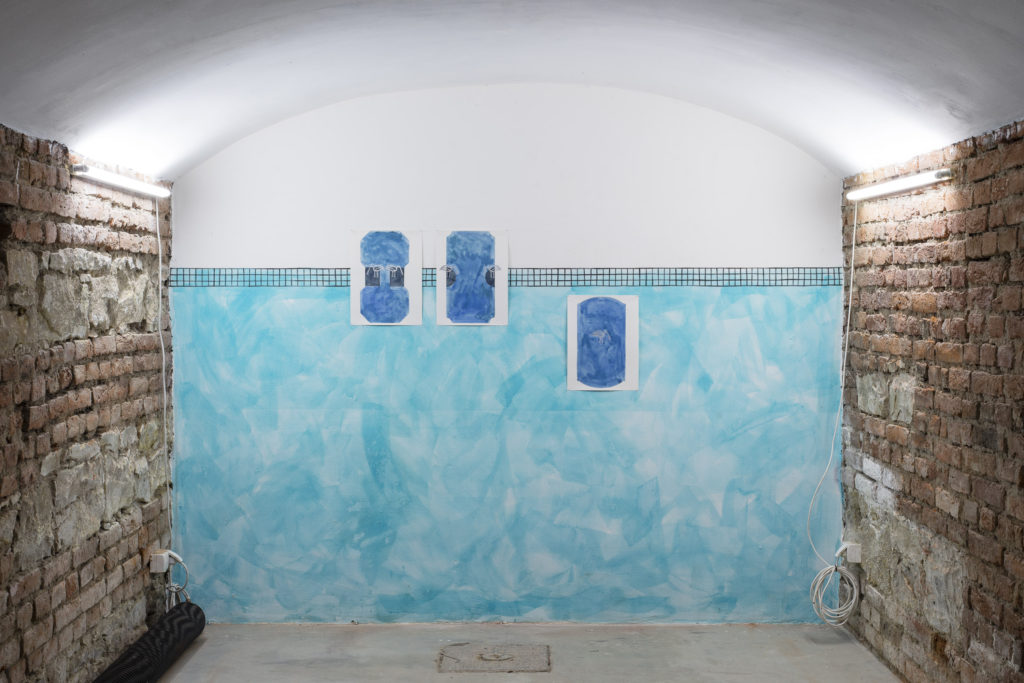
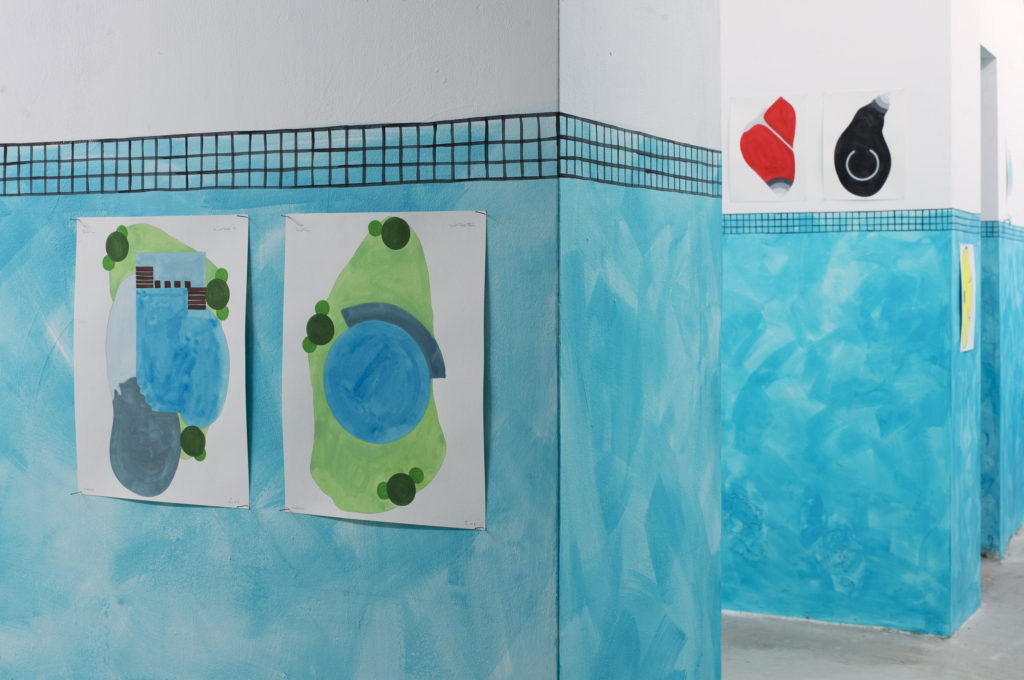

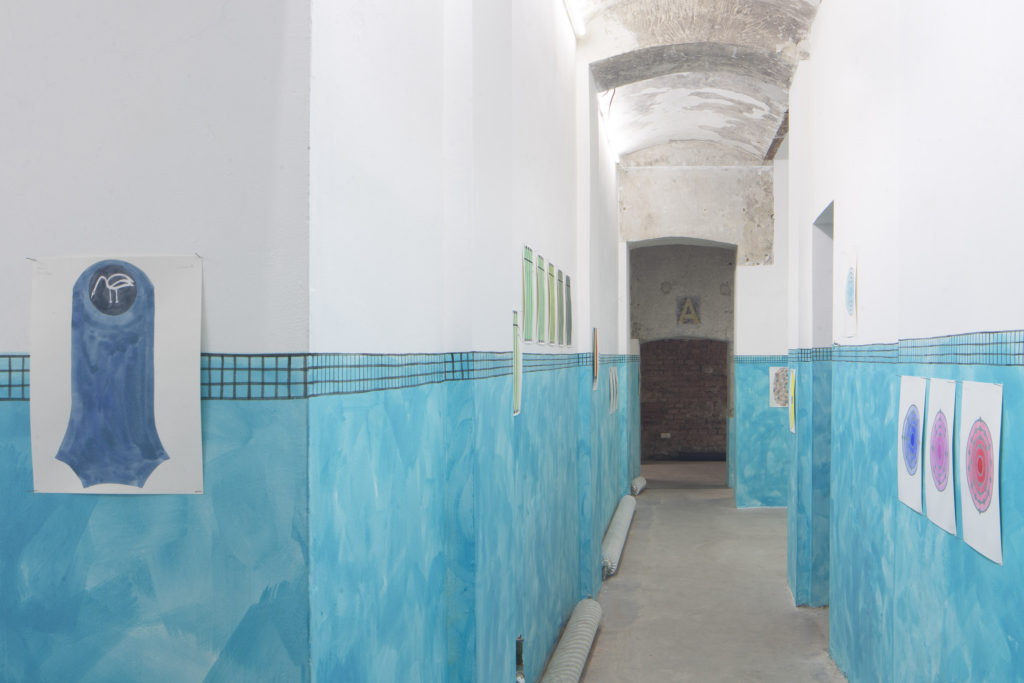
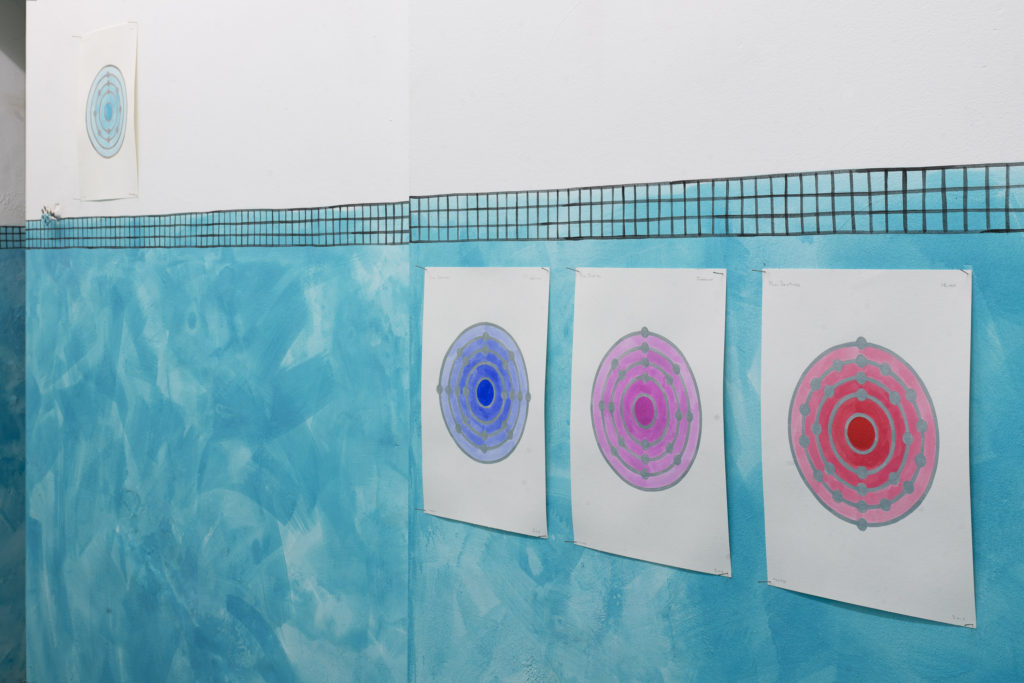
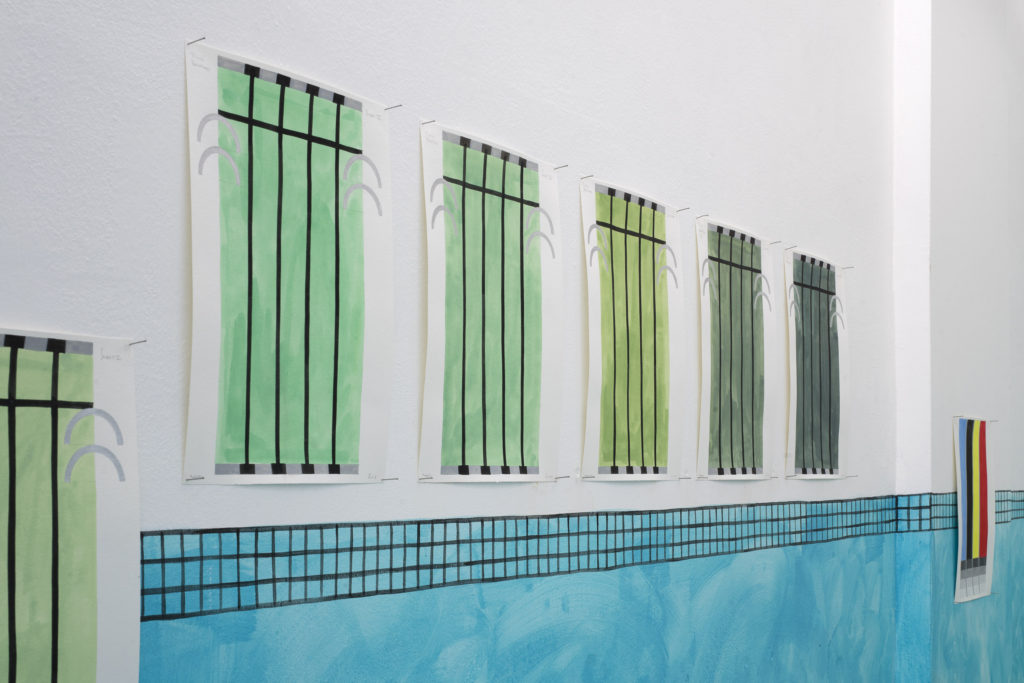
All photos are from the exhibition at Futura and were taken by Tomáš Souček, except the first 4 which are stills from the video Campus.
Biographies
Apparatus 22
Apparatus 22 is a transdisciplinary art collective founded in January 2011 by current members Erika Olea, Maria Farcas, Dragos Olea together with Ioana Nemes (1979 – 2011) in Bucharest, Romania. Beginning with 2015 they are working between Bucharest, Brussels and Suprainfinit (utopian universe). They see themselves as a collective of daydreamers, citizens of many realms, researchers, poetic activists and (failed) futurologists interested in exploring the intricate relationships between economy, politics, gender studies, social movements, religion and fashion in order to understand contemporary society. Starting with 2015 a major topic of research and reflection in the practice of Apparatus 22 is SUPRAINFINIT universe: a world-making attempt to use hope critically in navigating present and future. In their very diverse works – installations, performances, text based-shapes, reality is mixed with fiction and storytelling and all merge with a critical approach drawing knowledge & experience from design, sociology, literature and economics. The work of Apparatus 22 was presented in exhibitions at La Biennale di Venezia 2013, MUMOK, Vienna (AT), BOZAR – Centre for Fine Arts, Brussels (BE), Museion, Bolzano (IT), Kunsthalle Wien (AT), Académie Royale des Beaux-Arts de Bruxelles (BE), Brukenthal Museum Contemporary Art Gallery, Sibiu (RO), Akademie Schloss Solitude, Stuttgart (DE), Contemporary Art Museum (MNAC), Bucharest (RO), KunstMuseum Linz (AT), La Triennale di Milano (IT), TRAFO Gallery, Budapest (HU), Futura, Prague (CZ), Ujazdowski Castle – Centre for Contemporary Art, Warsaw (PL), Salonul de Proiecte, Bucharest (RO), Onomatopee Eindhoven (NL), TIME MACHINE BIENNIAL OF CONTEMPORARY ART, D-0 ARK UNDERGROUND, Konji (BIH), Osage Foundation (Hong Kong), Progetto Diogene, Turin (IT), Closer Art Centre, Kiev (UA), CIAP, Hasselt (BE), Barriera, Turin (IT), Art Encounters, Timisoara (RO), Suprainfinit Gallery, Bucharest (RO), GALLLERIAPIÙ, Bologna (IT), Lateral ArtSpace, Cluj (RO), Survival Kit festival, LCCA Riga (LV), Autostrada Bienniale Prizren (XK); performances and interventions at MAK, Vienna (AT), Steirischer Herbst, Graz (AT), Stedelijk Museum with De Appel CP Amsterdam, (NL), Kunsthal Gent (BE), Yarat Academy, Baku (AZ), Württembergischer Kunstverein Stuttgart (DE), Drodesera Festival, Dro (IT), Villa Empain, Brussels (BE), SMAK Gent, (BE), Swimmingpool, Sofia (BG), etc.
Enterprise Projects
Enterprise Projects is an Athens based project by independent curator and writer Danai Giannoglou and artist Vasilis Papageorgiou. Created out of our need to express and share our point of view concerning the contemporary artistic creation, this venture aims at experimenting and conversing; experimenting with the curatorial proposal, artistic creation, self-organized function, and conversing with the artistic scene, the Athenian audience and the place itself, which houses the project. As a structure Enterprise Projects has been functioning independently and periodically since September 2015 in Ampelokipoi, Athens.
fluent
fluent is a para-institution for contemporary art and research, presenting cycles of consecutive exhibition modules, texts, and live events revolving around thematic axes. Founded in 2016, it houses a studio space, a program of exhibitions and a series of seminars, screenings, performances and texts derived from each cycle’s thematic framework. fluent’s manifestations happen in several forms and places, both in its offices in Santander and abroad, organising specific projects and off-site events, carefully unfolding experimental practices in close collaboration with artists, thinkers, writers, researchers, and the community. Its working structure, logic and goals depart from the awareness of operating within and beyond an isolated context with the image of a touristic destination. Thus, we intentionally avoid the expectations of a conventional art space and encourage other ways of creating discourse, and of relating to audiences and artists alike. fluent promotes interdisciplinary dialogues and encourages involvement with other non for profits spaces, as well as institutional and educational systems nationally and internationally. fluent was founded by Alejandro Alonso Díaz, curator, writer and researcher whose work explores the metabolic encounters between natural, social and poetic structures of knowledge.
ODD
ODD was founded in 2014 in Bucharest, grounded in the Romanian imaginary and looking to act upon the world. A space for theoretical discussion and social gatherings of all kinds, it welcomes artists, writers, researchers, philosophers, scientists who initiate discussions, workshops, reading groups, or become engaged with one of the long-term series: ODD THEORY, ODD NIGHTS, or QUIET ODD. Its founder, Cristina Bogdan, is a researcher who writes for various publications and has edited books on art, theory, and design.
The Institute for Endotic Research (TIER)
The Institute for Endotic Research (TIER) began in 2015 as a fictional institution understood as a habitable sculpture. Its research unfolds from the notion of the endotic, a term coined by Georges Perec antonym of the exotic that could serve well as a way to rethink genealogies of institution making. It has since brought different practices together, namely architecture, art, mediation and curation, to foster a transdisciplinary approach. TIER works as a basis for experimenting with forms of institutionalization mediated through encounters between people, materials and devices. Lorenzo Sandoval founded The Institute for Endotic Research in 2015. Since 2018, it has been co-directed together with Benjamin Busch. TIER is currently working on an exhibition series and publication titled “Maintenance! Domestics as Institutional Becomings”.
Swimming Pool
Swimming Pool is a non-profit art project space and organization in Sofia, founded in 2015. Its focus lies on artist and curatorial research, collaborative approaches, art education and art politics. It is located on a central rooftop with an empty pool built in the 1930’s. Swimming Pool organizes exhibitions, performances, screenings, events and discussions to support Bulgarian art locally and abroad, while opening up the local context to international artists, curators and writers. Its program involves collaborations with similar independent organizations as well as with larger public institutions, at home and across Europe, such as Art in General / New York, David Dale Gallery / Glasgow, Jindřich Chalupecký Society / Prague, Е.М.М.А / Madrid, Alma Mater Gallery at the Sofia University and National Library in Sofia. During the last years, we started to experiment with more structural approaches so as to tap into the potential of non-institutionalized ways of learning. Part of this have been exchanges and residencies with international art schools, such as the National Art Academy / Sofia, Kunsthochschule Mainz, Piet Zwart Institute / Rotterdam, “Master of Voice” at Sandberg Institute / Amsterdam and the Pure Fiction Class at the Staedelschule / Frankfurt. Since 2018, Swimming Pool runs a yearly curatorial school where we gather with art practitioners to reflect on and activate small-scale organizations, such as independent project spaces, collectives and long-term curatorial projects. Another long-term project run by the space is Sofia Art Map, a non-commercial initiative to support the diversity and collaborations of Sofia’s independent art scene. Swimming Pool was founded by curator, writer and educator Viktoria Draganova, who organizes its artistic program.